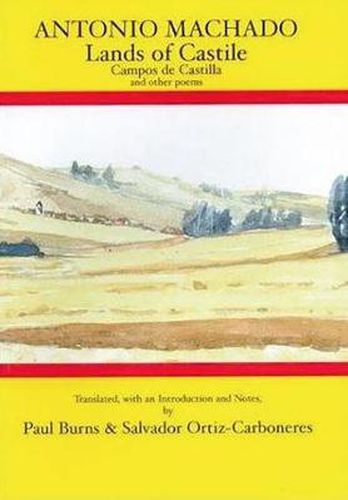Antonio Machado was born in Seville in 1885 and died in southern France early in 1939, escaping from the Nationalist advance in the Spanish Civil War. He is increasingly recognized as one of the three or four greatest Spanish-language poets of the twentieth century, but lack of adequate translations has limited his appreciation in the English-speaking world. Here a native Spanish and a native English speaker set out to remedy this deficiency.From Seville, Machado took the memory of an all-enveloping light. The family moved to Madrid when he was eight, and at twenty-two he took a job teaching French in Soria, some hundred miles north-east of the capital. There he fell in love with the landscape and with his landlady’s daughter, Leonor, whom he married two years later, when she was fifteen: ‘There I married; there my wife died’ of tuberculosis three years later. His sense of the land and his loss marked all his subsequent poetry. The landscape was that of the essential Castile, the symbol of the valid tradition of Spain seized on by the ‘Generation of '98’ as the building-block for a new future after the ‘sunset’ of the old Spain of carnival, casinos, and church bells in the loss of the last colonies in 1898. Its beauty, productive of patriotism, fused with its sadness as Leonor’s resting-place, gave Machado his distinctive voice intimate, elegaic, at once detached and involved, most characteristically expressed in Campos de Castilla (1917), from which many of the poems here selected are taken.Machado left Soria immediately after Leonor’s death, saved from suicide, as he claimed, by the book’s success, which showed him he still had work to do. After some years teaching in Baeza, he moved back to Castile, dividing his life between teaching in Segovia and the literary and theatrical circles of Madrid. His tone became more philosophical, meditating constantly on identity, inventing the philosopher Juan de Mairena and his master Abel Martin to pursue his dialogues on appearances, illusions, personality, mystery, dreams and death.The language of his poems is spare, relying strongly on nouns and adjectives, asserting more than describing, equally anti-baroque and against the ‘excesses of modern cosmetics’ (Self Portrait). His father had been a collector of folklore, and Machado saw the romance (ballad) tradition as lying at the heart of the authentic Spanish poetic tradition. English cannot recreate the assonance on which he relied, but this translation captures the essential rhythm as well as the poignancy of the original.
Read More





